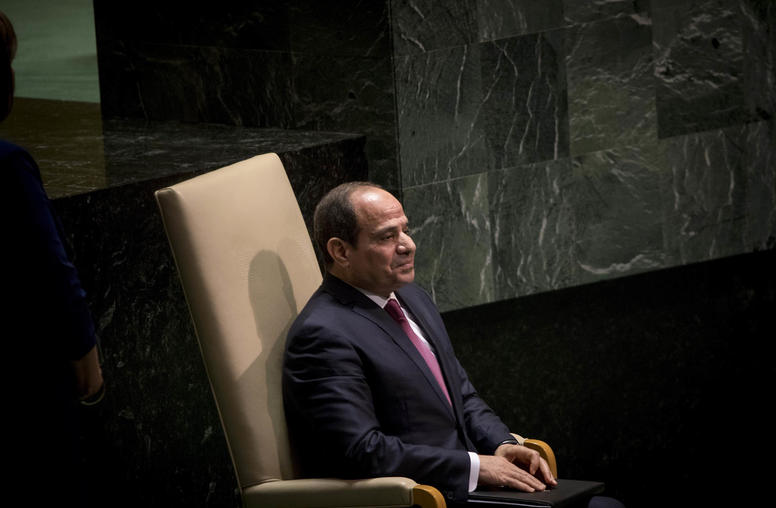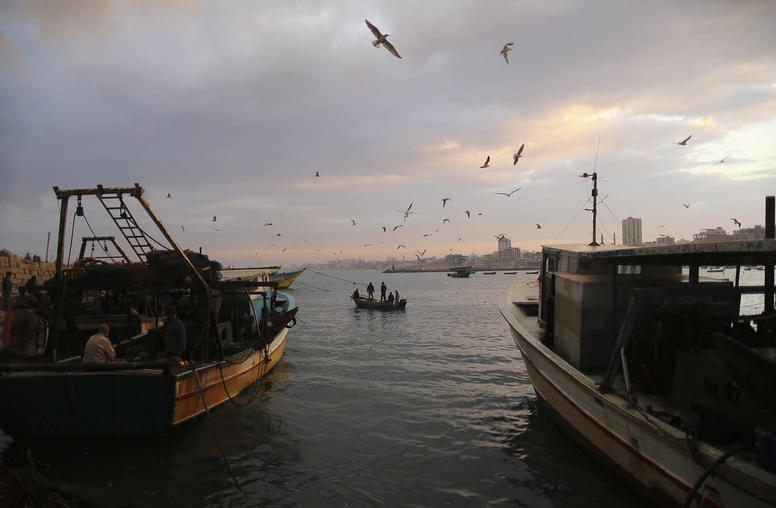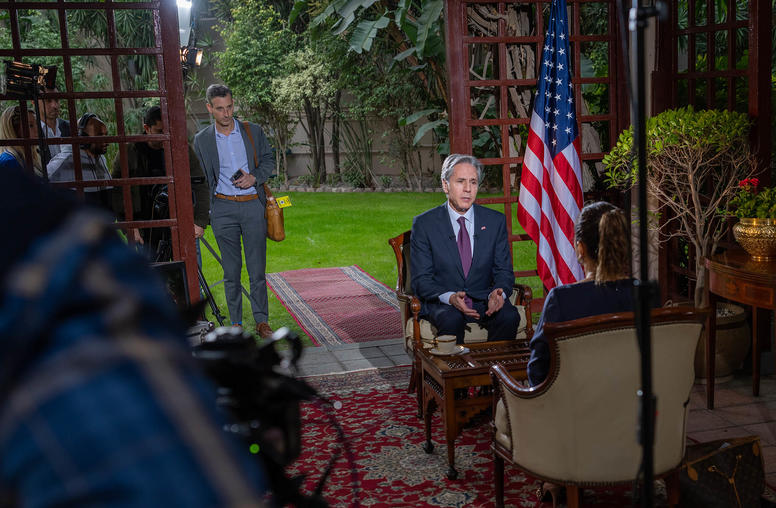As the dramatic events of the Arab Spring turn to the more mundane yet vital work of governance, constitution writing and peacebuilding, USIP is on the ground, bringing its unique brand of action and expertise to the effort.
November 14, 2011
As the dramatic events of the Arab Spring turn to the more mundane yet vital work of governance, constitution writing and peacebuilding, USIP is on the ground, bringing its unique brand of action and expertise to the effort.
USIP is in North Africa, for example, where Libyans, Tunisians and Egyptians are scrambling to fill the void left by autocratic, corrupt and brutal regimes with more responsive and democratically aligned governments. USIP’s mediation work, training programs, facilitation and tested approach to solving or preventing conflict are teaching these new practitioners of peace in North Africa to establish a foothold.
There is a real feeling of excitement about what’s next, say USIP experts who have traveled to the region extensively.
“A lot of people think there is no vision for what’s afterwards,” says USIP’s Manal Omar, who runs the Institute’s programs in Iraq, Iran and North Africa and has visited the region for extended stays three times this year. “The vision is incredibly clear: people in the region want democracy and they want a government that provides opportunities.”
It’s at that intersection, between nascent governments wrestling with big questions and citizens grappling for answers and services that USIP is working to make a difference.
The efforts the Institute is undertaking in Libya offers one of the most dynamic examples. There, USIP is training and advising more than 60 people on basic conflict management to form a “stabilization team” that would ultimately become part of the National Transitional Council and serve, in effect, as an instrument of peace.
USIP is training religious and tribal leaders and others who can benefit from a “research-based and scientific approach to conflict management” that nonetheless incorporates some of those leaders’ own techniques. By the end of October, USIP had trained 120 Libyans, according to Omar. That group will form the first-ever “rapid response team” that by November will be identified to help in trouble spots around the country.
“We’re not just training people to introduce these concepts, we’re actually preparing them to go and mitigate conflict,” says USIP’s Manal Omar. “As all these issues continue to merge, how do we make sure they don’t respond violently?”
And in November, USIP sponsored a roundtable discussion in Libya that will bring together members of Libya’s transitional government, civil society and political leaders to discuss how the country will write its new constitution. But the effort is not one in which international actors such as the U.S. or others will define the process or guide participants to a specific outcome. USIP will only just facilitate the discussion and provide examples from comparative international experiences, says the Institute’s Jason Gluck, one of USIP’s senior rule of law advisers.
“The dialogue is very much Libyan driven,” says Gluck.
But as dry as writing a constitution may seem, it’s of course crucial. The roundtable, held in Benghazi in November, is expected to help Libyans determine what the goals of the constitution-making process might be – is it simply to produce a document, or go beyond that to promote national reconciliation, educate the people on democratic citizenship, or strengthen national identity?
The group will decide how it could identify its core principles to achieve the goals it determines are must-haves: how inclusive should the process be? Should the general public be consulted on its views? “Identifying the right people to sit around the table is critical to the legitimacy of the process,” Gluck says. “While soliciting the views of the people can have a transformative effect for Libya’s transition to democracy.”
Finally, the group will help Libyans determine how the constitution might be designed, work through timing issues, and to foster a discussion about how to connect the citizenry to their new constitution.
In Tunisia, USIP is in the early stages of discussions with a range of groups and actors working on issues of democracy and human rights, according to USIP’s Dan Brumberg. While countries such as Egypt enjoyed a diverse offering of nongovernmental agencies working in any a number of roles, authoritarian regimes in countries like Tunisia simply didn’t allow non-governmental organizations to operate. That means it will take all the more time for Tunisia to develop the infrastructure – and mind-set – for organizations like USIP and other organizations to work on the ground, Brumberg says.
“Just the process of building institutional capacity is something that many organizations must do now,” Brumberg says. “They didn’t have the space to organize under the previous regime.”
Tunisia offers other challenges for an organization like USIP that seeks to offer its services in helping to facilitate constitution building and conduct rule of law work.
It’s a question of managing expectations among the young – especially in the rural areas in which the revolution really began, says Brumberg. Many Tunisians in those areas want economic justice in the form of job development, for example.
But those concerns can’t be immediately addressed in the context of a reform that will focus, over the next year, on writing a new constitution and setting the framework for long-term democracy.
“Managing expectations and aspirations is a huge challenge in that country,” says Brumberg who adds that it’s important to “make it real” for those young revolutionaries. “For whatever lies ahead, it’s critical that Tunisia’s leaders undertake initiatives that link the intricacies of political reform with the daily challenges that young people face.”
Typical of the approach USIP takes in all its field work, the work the Institute is planning for North Africa will develop programs it will continue to support long afterward.
“We don’t just leave them,” Omar says. “We really want to build an ongoing relationship.”
As the Arab Spring unfolded, USIP also looked for ways to “unpack, unravel and understand” the role that social media has had on the Arab Spring. Through it’s ongoing Blogs & Bullets initiative, USIP has made this kind of research a major priority, says Sheldon Himelfarb, who heads the program as director of USIP’s Center of Innovation for Science, Technology and Peacebuilding.
“You keep hearing about Twitter or Facebook as being invaluable resources to the activists, but what does that really mean? How was it really being used?”
He says the key lies in understanding the specific causal mechanisms at play – would the Arab Spring never have happened without new social media tools, or were these technology platforms simply an accelerant that helped fan the flames of discontent that spread across the Middle East and North Africa?
USIP brought together leading researchers and policymakers to discuss the issue, showcasing the latest analysis of social media data from the region. USIP-funded research conducted by experts at The George Washington University found social media content around the Arab Spring, including tweets and Facebook posts, were mostly used to link to conventional media outlets like the Al-Jazeera news network. That suggests that it wasn’t social media outlets that were driving the revolutions necessarily, or that they were used as coordination tools for political activists, but that they were simply the conduit through which people exchanged ideas and information with each other and the outside world.
“In fact, there were far more people tweeting about Arab Spring from the U.S. and Europe than from the Middle East/North Africa region,” Himelfarb says, noting that it’s important to look at the phenomenon in the context of the regional and global “media ecology,” he says. “Overall, this kind of analysis tells us that to look at social media in a vacuum is a mistake.”
USIP is looking at ways to help transform the media model in places like North Africa from one that operated within dictatorship governments to one that is free and independent. Much in the same way USIP provided support to journalists in Iraq, USIP earlier this year created the Arab Resource Center that provides resources for journalists learning how to professionalize and operate effectively in these post-dictatorship environments.



